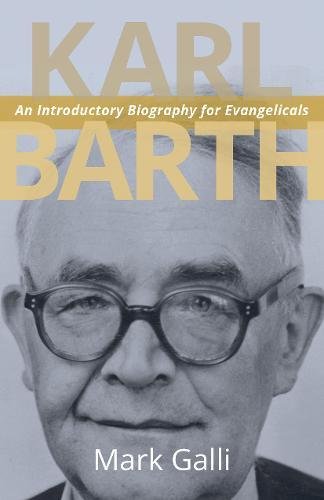Q. Barth sees the role of Christians as simply witnesses to God’s revelation and God’s work. Sometimes he doesn’t seem to have much of a concept of our being God’s hands and feet to get things accomplished, and sometimes his own actions belie his bold statements about God must do everything and we can only point to his doing it. What do you make of this part of his dialectic?
A. What he is calling for, I believe, is humility in all our efforts. With reservations, he’s not adverse to calling us “partners” with God in the world, and he expressly says that God did not want to live without us as partners. But all this comes after it is clear that it is God who, in his sovereign grace, has made us partners, without asking our consent! Meaning, the life of faith is living in partnership with God in the world to love the neighbor and witness to the good news of the gospel.
But I believe Barth would be hesitant to look at anything he did or wrote and say, “That’s me and God working together.” He recognized how easily it is to fool ourselves into thinking what we are doing is God’s work. That’s what the Inquisitors thought, as did the Crusaders, as have hundreds of cult leaders. The best we can do is try to discern where God is calling us to work, bring our human talents and energies to bear on that task, and then trust in God’s mercy to bless that part of the work he wishes to bless. To claim it is a godly work as such is just not within our purview. God will judge all our works in the last day, so let’s let him do that job, and we’ll do ours.
[N.B. And yet Paul regularly talks about himself and others as co-workers of God. BW3]
Q. One of the reasons Evangelicals have often found Barth ‘approachable’ and useful is because of his rejections of the Bultmanian demythologizing of the NT project. And yet of course Barth was no fundamentalist or even a foundationalist in the modern sense of a person who thinks we can know or even prove the historical foundations of the faith. What does Barth’s critique of Bultmann tell you about Barth and his real views?
A. Barth believes that the resurrection, for example, is a real event in real time, but I think he’d be hesitant to call it “historical.” By the canons of history, it’s not something you can prove, and even if you could, it would not be decisive for faith. In this I think Barth’s right: I know of people who believe Jesus rose from the dead but who do not trust in Christ for salvation or follow him day to day. To try to prove the resurrection historically is a mistake, according to Barth, because it grounds our faith in the shifting sands of history or the philosophy of history—that is, in us and our rationality.
Here’s where I find Barth inadequate. In fact, a good historian can show that the bodily resurrection of Jesus is not necessarily something that is historically unimaginable. That is, there is evidence that points in the direction of Jesus’ being raised from the dead. And that can open doors to further conversations with an unbeliever. But I think Barth is right in this respect: historical “proof” is a thin thing. Many people who personally witnessed the bodily resurrection did not believe it (Mt. 28:17)!
Q. I love the quote of Barth at 70 about being like a fir tree. I also think there is much in his comment about having intellectual work to do which has kept him going well past 70. Retirement, after all, is not a Biblical concept and I was recently horrified by a Duke Endowment study about how soon after retiring, Methodist ministers tend to die. Often within five years and not just because of being worn out. Barth seems to have taken seriously both a physical and a mental regimen into old age. He didn’t want to go ‘off the boil’ as the British would say. In your reading of the Dogmatics, much of the latter part of which he wrote in his 60s and later, would you say that the later volumes show less rigor and vigor than the earlier ones?
A. No, but he could have used an editor! He could have used someone to reign in his prose. At times it’s deeply stirring, even bring tears to my eyes. At other times, it’s just tedious. But lack of vigor was not the problem. It was the increased vigor and attention to theological detail that prevented him from finishing the project.












